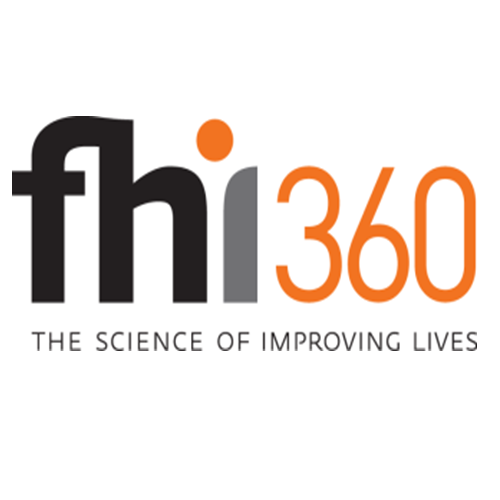Associate Director ” Gender and Social Inclusion (GESI)”-FHI360 عودة إلى الفرص
FHI 360
يطلق Appel à candidaturesانتهاء الصلاحية
22 أفريل 2021 Il y a 5 ans
شروط الترشّح
أنقر هنا للاطّلاع على شروط الترشّحشارك الفرصة على
تفاصيل الفرصة
المجالات المعنيّة بهذه الفرصة: Développement économique et social
FHI 360 is a global development organization with a rigorous, evidence-based approach. Our professional staff includes experts in health, nutrition, education, economic development, civil society, environment, and research. FHI 360 operates from 60 offices with 4,400 staff around the world. Our commitment to partnerships at every level and our multidisciplinary approach enable us to have a lasting impact on the individuals, communities, and countries we serve–improving lives for millions.
Background: Ma3an is a five-year (2018-2023) USAID-funded project with the goal to increase youth participation in civic and political life, address youth grievances, and prevent radicalization in Tunisian communities vulnerable to violent extremism. Ma3an’s objectives include: Youth are equipped with skills and engaged in civic actions with local actors to address their communities’ needs and grievances (Positive Youth Development – PYD), and Tunisian capabilities to prevent and counter violent extremism are enhanced (Preventing/Counter -Violent Extremism- P/CVE). At the community level, Ma3an uses a community-driven PYD/PVE model to inform and support sustainable interventions through ongoing collaboration between community actors that are inclusive, participatory, and solutions-focused. These include working with and through local CSO partners to understand local dynamics in each community; and implement community-driven PYD/PVE programming involving youth, local NGOs, local government, and other community leaders through community-specific grants. At the national level, Ma3an works to engage in discussions and advocate for government policy reforms that benefit youth and social cohesion.
Responsibilities
- Lead the development and implementation of Ma3an’s overall strategy for gender and social inclusion
- Ensure that women, youth, people with disabilities and other marginalized or vulnerable populations are integrated into all program activities, including technical implementation, monitoring, operations, policies, and procedures by designing activities that target these groups within the scope of the project.
- Provide gender, social inclusion technical advice and trainings to program staff, national and local CSO partners, and stakeholders to build their capacity to integrate gender, youth, and disability inclusion considerations into designing interventions, implementation, and monitoring and evaluation.
- Support Country Director, project leads and safeguarding focal point(s) in creating, promoting, and maintaining safe and equitable work environments for all FHI 360 personnel, including a harassment- and violence-free work culture, and systems for safeguarding program participants.
- Lead or assist in the design and implementation of gender and social inclusion analyses, impact assessments and other learning studies.
- Review and provide input to project work plans, with attention to GESI dimensions of technical activities and operations and discuss GESI issues and priorities with project senior management and other technical specialists.
- Work closely with Regional Program Managers to ensure that gender, youth, and disability inclusion considerations are assessed and accounted for in all community-driven activities.
- Support the Director of MEL to plan the collection and analysis of relevant data and assist in the collection and analysis of sex- and age-disaggregated data. Work with the MEL team to identify GESI learning questions and outcomes. Lead the GESI adaptive learning strategies.
- Incorporate gender, youth, disability inclusion and safeguarding considerations into Ma3an’s Performance Monitoring Plan, with an emphasis on designing indicators that drive high-value project activities.
- Travel to project locations to oversee technical inputs.
- Serve as the lead technical writer on project reports and prepare internal documentation as required.
- Maintain an up-to-date and thorough understanding of gender, youth and disability inclusion issues related to project components.
- Write, coordinate, and disseminate lessons learned among team and program partners and via social media.
شروط الترشّح
- Master’s degree in gender studies, international development, sociology, or relevant field.
- Minimum 8 years of relevant working experience including five years’ experience in donor-funded gender and social inclusion programming.
- Experience with positive youth development and extremism/CVE frameworks and programming is preferred.
- Experience with USAID and/or any other international donor funded project is preferred.
- Knowledge of do no harm principles and women’s empowerment approaches is preferred.
- Experience in conducting gender analysis, research or evaluation is preferred.
- Excellent communication and facilitation skills, Fluency in English and Arabic and/or French is required.
- Demonstrated leadership, strategic thinking, and communication skills.
- Significant program management experience, including overseeing field projects.
- Track record of experience on GESI capacity development of program staff and partner organizations.
انتهت صلوحية الفرصة
للأسف هذه الفرصة لم تعد موجودة على جمعيتي . زوروا بانتظام قسم الفرص لتجنب افلات الفرص اللاحقة
للاتصال
Marwa Belgasmi
Recruitment Associateتابع "جمعيتي" على لينكد إن
احصلوا على جمعيتي موبايل من الآن

دعوة للترشّح منشور على "جمعيتي" في 22 mars 2021
إكتشف المزيد من الفرص على "جمعيتي" عبر النّقر على هذا الرّابط.

